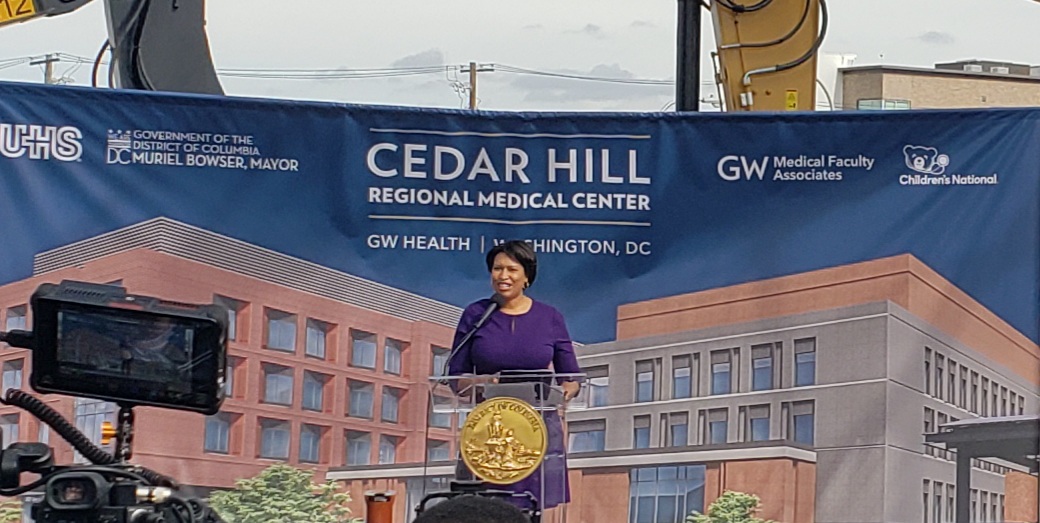Health Equity
Medicaid Enrollment Touches 39% of the Residents of The District of Columbia; DC’s 70/30 FMAP is Vital for the Maintenance of Health & Human Services
A reduction in the District’s FMAP would not lead to long-term government savings and would have a ripple effect throughout the entire health system in the DMV, crippling access to care for not only Medicaid beneficiaries but also all those who live, work, and visit the District of Columbia, including members of Congress and their staffs.
.png?sfvrsn=9ac2d21b_0)
Why does DC receive an Enhanced FMAP Rate?
The DC FMAP rate of 70% established by the Revitalization Act resulted from bipartisan analysis, discussion, and negotiation by Congressional leadership aiming to balance fairness with the District’s restricted ability to generate revenue. Congress recognized that the District of Columbia faces unique financial challenges due to its non-state status and the significant amount of federally-owned land within its boundaries. The District is unable to tax non-residents’ earnings, so these workers pay no taxes to support the infrastructure and services, such as roads, public safety and emergency services that they benefit from in the District. The District is also unable to tax up to 40% of the real property within its borders due to statutory restrictions.
Why are we concerned about DC's FMAP now?
Members of Congress have proposed reducing the DC FMAP to the statutory minimum for all other states, which is currently 50% (but could be reduced even more). Such a change would impact every physician and every practice, regardless of type, location, and payers contracted. Even practices who take no insurance will not be able to send patients for specialist care, hospital admissions, or other types of care.
What can MSDC members do?
- If you know a member of Congress or staffer, reach out to them and share how DC cuts will hurt your patients.
- Share your relationships and outreach with hay@msdc.org so we can help coordinate advocacy efforts.
- Email hay@msdc.org if you would like to be paired with a physician member of Congress office and trained by MSDC staff on how to reach out.
Resources
- DC FMAP cut fact sheet
- California Medical Association fact sheet on Medicaid cuts
- MSDC and healthcare association letter to Congress arguing against DC FMAP changes.
- MSDC original story on Medicaid changes.
News, Statements, and Testimony on Health Equity Issues
MSDC Joins Groundbreaking Celebration for East End Hospital

Today, Mayor Muriel Bowser held a groundbreaking ceremony for the new hospital at the St. Elizabeth’s East Campus and announced the new name, Cedar Hill Regional Health Center, GW Health. MSDC attended the ceremony, as did officials from Universal Health Services, George Washington University, and Children’s National Hospital, as a long-time advocate for increased access to healthcare East of the River. Quality care for all, including equitable healthcare facilities across all eight wards, is a top priority in MSDC’s advocacy agenda.
The new 136-bed full-service hospital will provide a range of inpatient services to all District residents, including newborn delivery, maternal health and women’s services, a verified trauma center, general surgery, behavioral health, and pediatric and adult emergency services. According to the Office of the Mayor, the facility is scheduled to open to patients in late December 2024 and will be operated by Universal Health Services under a 75-year lease. Physicians, practitioners, and academic medicine will be provided by George Washington University Medical Faculty Associates, the George Washington University School of Medicine and Health Sciences, and Children’s National Hospital.
Although a modern hospital built with a local partner and reputable healthcare system is a best-case scenario for a new community hospital, it is not a cure-all for health care access East of the River. As past MSDC president Dr. Julian Craig said when testifying before the DC Council in June 2020, "A comprehensive healthcare system requires not only a world class hospital, but also independent physician practices." Independent practice physicians, who are often engaged in their community, and are important to a healthy physician mix for Wards 7 and 8. MSDC and its Private Practice Physicians Section are working to improve conditions for independent practice physicians East of the River, and across all eight wards.
